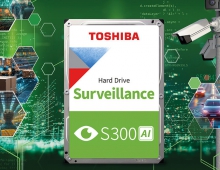
Toshiba Chip-Unit Final Agreement Said to be Delayed, WD Opposes Participation of SK Hynix
A final agreement related to future of Toshiba's memory chip business may be delayed beyond the electronics maker's self-imposed deadline this week, as investors work out the structure of the deal and Western Digital will not support it with rival SK Hynix being part of the preferred bidding consortium.
Last week Toshiba announced the preferred bidders for its chip unit, and said it planned to reach an agreement by Wednesday, June 28, and then close the transaction by March.
According to Bloomberg's sources, the Innovation Network Corp. of Japan and Development Bank of Japan, which joined up with Bain Capital, aren't in a hurry to reach a final agreement as they conduct due diligence because their participation won't require a lengthy antitrust review process. In addition, the outline of the deal may change depending on what happens with Western Digital, which jointly owns certain chip assets with Toshiba and has contested its authority to sell the semiconductor unit.
Steve Milligan, Western Digital's chief executive officer, sent a letter to Toshiba on Sunday, saying that it's risking technology leakage by letting Hynix participate in the sale of the chip business. "I must make it clear that Western Digital will not consent to a transaction with the proposed consortium," Milligan wrote, adding that Western Digital will press forward in seeking an injunction against a sale of the chip unit.
Toshiba officialy said there was no change in the Tokyo-based manufacturer's schedule.
Bain, INCJ and DBJ have indicated that they're willing to pay 2.1 trillion yen ($19 billion) for the semiconductor unit.
South Korean chipmaker SK Hynix Inc. is said to join the group by providing only loans to avoid antitrust hurdles. Toshiba CEO Satoshi Tsunakawa told a news conference on Friday that SK Hynix would not be holding any equity and would not be involved in management - an arrangement that was unlikely to raise regulatory red flags and would prevent leaks of key technology information.





















